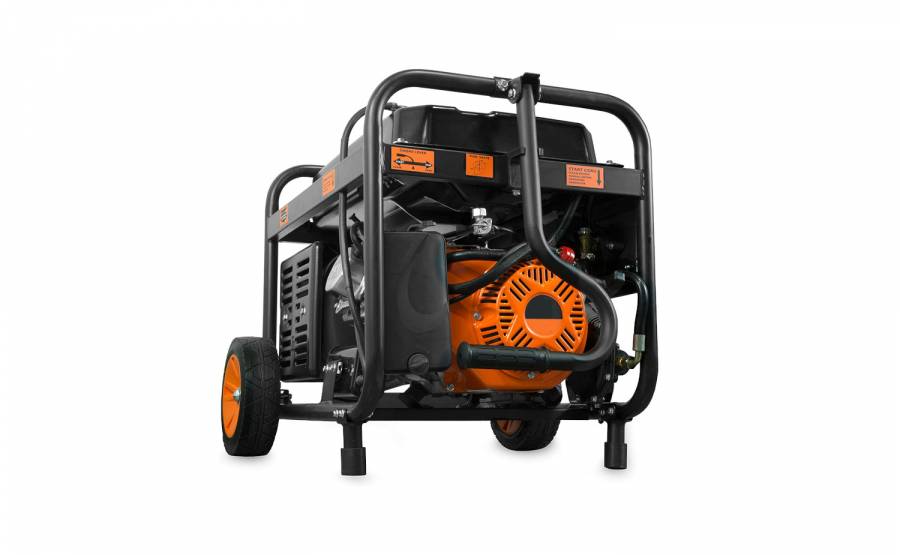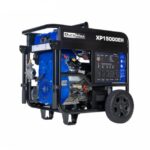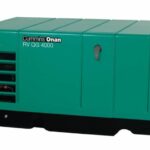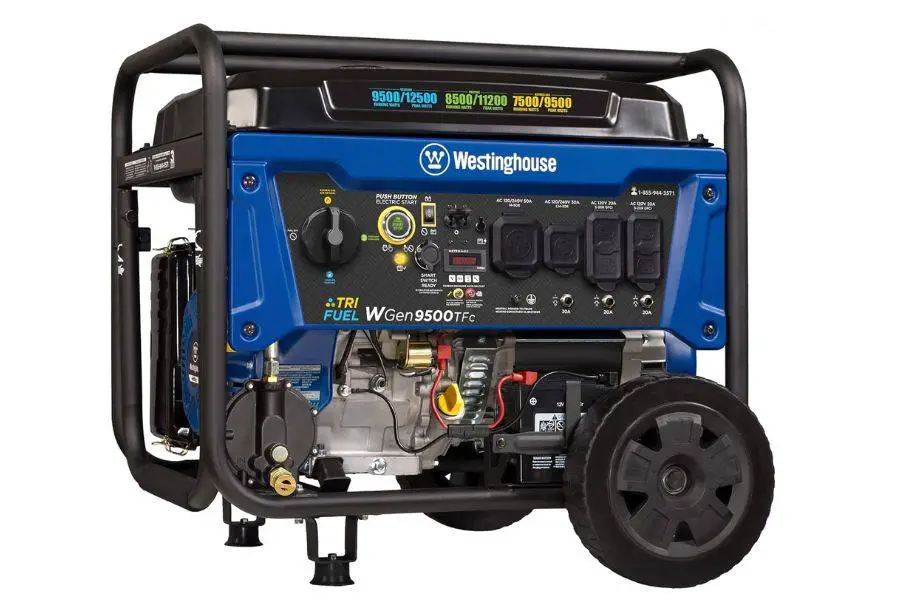Table of Contents
When the time comes to change from conventional generator fuel to natural gas, you might not be aware of all the problems that might arise due to the switch.
This post will look at some central issues and what you can do to prepare for them.

You will be able to make a better intelligent decision about whether or not converting your generator is the best option for you if you are aware of what to anticipate from the process.
So, read on for more information.
Converting Generator To Natural Gas – Common Problems
Efficiency
Efficiency is an issue with converting generators to natural gas is efficiency.
Natural gas is not as energy-dense as other fuels, so generators may not be able to produce as much power when running on natural gas.
However, newer and more efficient generators can overcome this problem.
Availability
Natural gas may not be available in all areas, so checking before investing in a conversion kit is essential.
There are also portable natural gas generators available that can be used in areas where natural gas is unavailable.
Cost Of Conversion
The cost of converting a generator to natural gas can be a challenge.
The process requires investing in new equipment and learning new techniques, which can be expensive.
Additionally, the conversion may not be perfect, leading to problems with the generator’s performance or emissions.
Ultimately, the conversion cost may be more trouble than it’s worth.
The Engine May Not Run Reliably On Natural Gas
Natural gas is a popular fuel choice for generators because it is clean burning and has a relatively high-temperature combustion range.
However, there are potential problems when converting an engine to run on natural gas.
The first issue is that natural gas is not as efficient as gasoline or diesel in converting energy into motion. It means that the engine may not run reliably on natural gas.
The problem is that natural gas contains higher concentrations of methane than other fuels, which can cause explosions and fires if you accidentally leak it.
Finally, because natural gas is composed of molecules easily broken down by the water, it cannot be easy to store and transport.
The Conversion Process May Damage The Engine
The conversion process of generating power from natural gas may damage the engine.
The National Renewable Energy Laboratory (NREL) has found that the conversion process can cause wear and tear on engines, even when done correctly.
It is because of the higher compression ratios used during the conversion process.
The high compression ratios can create heat that can cause damage to components inside an engine.
NREL also found that some additives used in the conversion process may damage engines.
Incompatibility Of Some Appliances
A common problem people encounter when converting their generator to natural gas is the incompatibility of some appliances.
It can be a big issue, as not all generators are compatible, and many appliances use different fuel types. When it comes to using a generator, compatibility is critical.
If an appliance is incompatible with the generator, it will not work and can potentially cause dangerous conditions.
Unfortunately, this incompatibility can be a severe problem when converting to natural gas.
Lack Of Standardization In Natural Gas Meters And Regulators
Lack of standardization in natural gas meters and regulators is the problem with converting generators to natural gas.
This lack of standardization creates difficulties when interpreting readings from different meters and using regulators to adjust gas flow.
Consequently, this can lead to inaccuracies in fuel usage and wasted energy.
The problem is compounded by the fact that many older homes were built with natural gas meters and regulators incompatible with modern systems, making it difficult or impossible to convert.

Safety Concerns With Flammable Gas
The problem with converting a generator to natural gas is that natural gas is flammable. Natural gas contains methane, which is the most explosive of all gases.
If a spark or flame occurs near natural gas, it can ignite and create a dangerous fire.
It is why it’s crucial to be extra careful when converting a generator to natural gas and to eliminate any potential sources of sparks or flames.
Difficulties In Installation For Older Homes
Many people are converting their generators to natural gas because of the many benefits it has to offer.
However, there are a few difficulties that often come with this conversion.
One of the biggest problems is that older homes can be challenging to install a generator. It is because many of them have outdated wiring and insulation.
Additionally, some older homes do not have enough ventilation for a gas generator, which can create poisonous fumes.
Not All Generators Can Be Converted To Natural Gas
Not all generators can be converted to natural gas, which is the problem with converting them.
Natural gas is a cleaner-burning fuel that creates less pollution than traditional fuels like gasoline or diesel.
For a generator to convert to natural gas, it must have a unique gas engine, and the conversion process can be expensive.
Additionally, the conversion process can create safety hazards if done improperly.
If you are thinking of purchasing or converting a generator, consult with an expert first to make the right decision for your needs.
Requires Regular Maintenance
Converting a generator to natural gas can be cost-effective but requires regular maintenance.
Natural gas has a shorter lifespan than oil or diesel generators and must be serviced more often to maintain reliability.
This additional expense can negate the savings of using natural gas over traditional fuels.
May Void Warranty
The warranty is the first thing that comes to most people’s thoughts whenever they consider purchasing a generator.
But what happens when you need to convert your generator to natural gas? The void warranty problem arises.
Converting a generator to natural gas can void the manufacturer’s warranty.
For example, suppose you have a Generac standby generator with a one-year limited warranty and convert it to natural gas.
The manufacturer cannot help you if something goes wrong because the warranty has been voided.
This problem becomes more complicated if the generator is not purchased through an authorized dealer.
If you buy your generator and convert it yourself, you may not be able to get help from the manufacturer if something goes wrong.
In addition, conversion of your machine may also void any extended warranties that might be available.
The Difficulty Of Finding A Qualified Technician To Do The Job
Converting a generator to run on natural gas is a challenging job for a qualified technician.
The conversion requires special tools, knowledge, and experience that not all technicians have.
Many safety concerns must be considered when converting a generator to run on natural gas.
Additionally, many municipalities have strict regulations about who can convert generators to run on natural gas and how they must be done.
Conclusion
If you are thinking of converting your generator to natural gas, be sure to take the necessary precautions and do your research.
There are many benefits to using natural gas generators, but there are also some potential problems that you must be aware of.
By taking the time to understand these problems and how they can be avoided or mitigated, you can make a well-informed decision about whether or not converting your generator is right for you.








